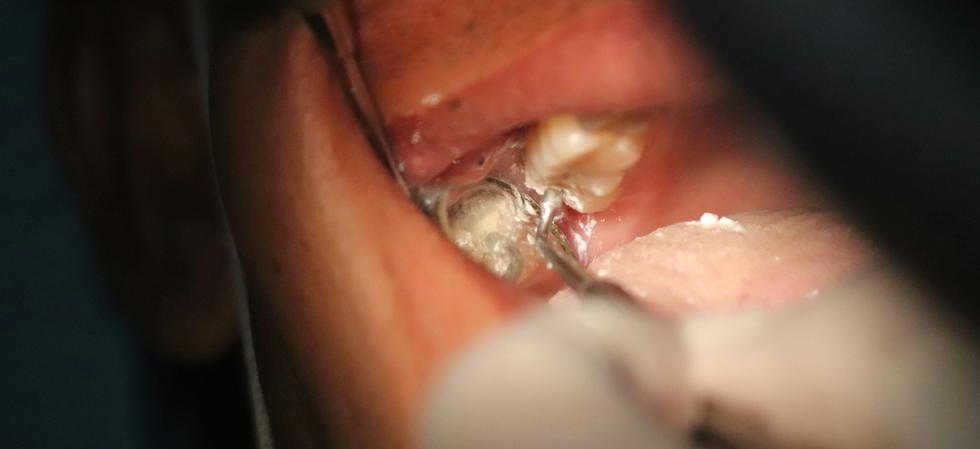What are salivary stones?
Salivary stones, also called sialoliths or salivary gland stones, are small calcified deposits that form in the salivary glands, most often in the submandibular salivary gland. These stones can block the flow of saliva, which can cause pain and swelling, especially during meals.
Causes of salivary stones
Altered salivary composition: A higher concentration of calcium in saliva can increase the risk of stone formation.
Reduced salivary flow: Reduced saliva production, often due to dehydration or certain diseases, can contribute to the formation of salivary stones.
Infections: Chronic or recurrent infections of the salivary glands can increase the risk of stone formation.
Medications: Certain medications that reduce saliva production can also contribute to the development of salivary stones.
Common symptoms of salivary stone
Pain in the floor of the mouth or jaw: Most often in connection with meals when saliva production increases and the stone blocks the flow.
Swelling: The gland can swell, especially during meals.
Dry mouth: Reduced saliva production can give a feeling of dry mouth.
Bad taste in the mouth: If infection occurs, it can give a bad taste or smell.
Fever: In case of infection of the salivary gland, fever may occur.
Diagnosis of salivary stone
The diagnosis is often made through a combination of symptoms, clinical examination and sometimes Imaging:
Palpation: The doctor can feel a hard lump in the salivary gland.
Ultrasound: Can show the location and size of the stone.
X-ray: In some cases, an X-ray can show the stone if it is sufficiently calcified.
Treatment of salivary stones
Treatment depends on the size and location of the stone:
Small stones: Can sometimes be massaged out or dislodged spontaneously with increased saliva production by sucking on sour candy or drinking plenty of fluids.
Larger stones: Sometimes require a doctor to remove the stone through a minor surgical procedure surgery.
Antibiotics: In case of infection, antibiotics may be needed.
In rare cases, if the problems are recurrent and severe, the entire salivary gland may need to be surgically removed.
Preventive measures
- Stay well hydrated and avoid dehydration.
- Maintain good oral hygiene.
- Avoid medications that reduce saliva production if possible.






















